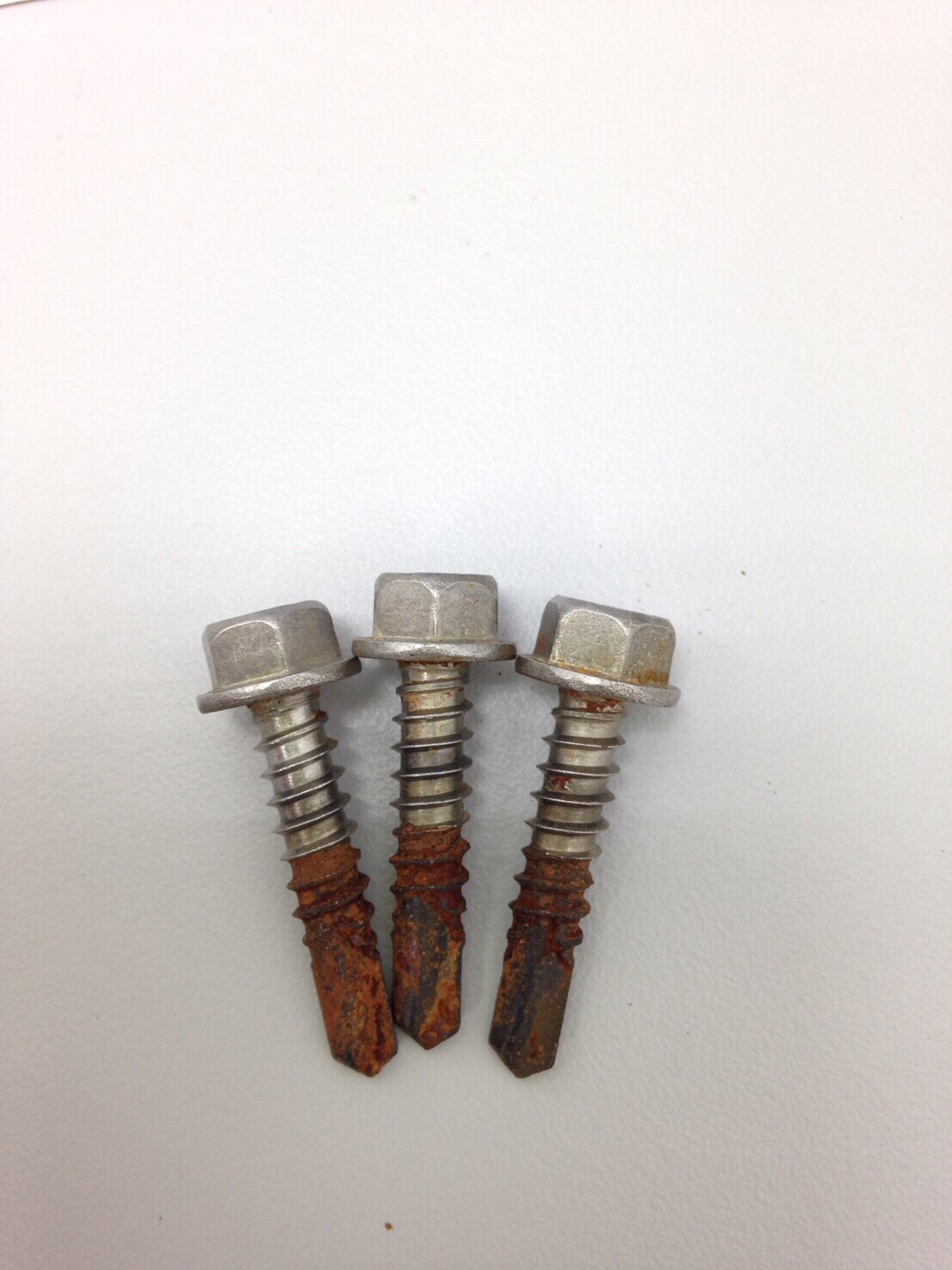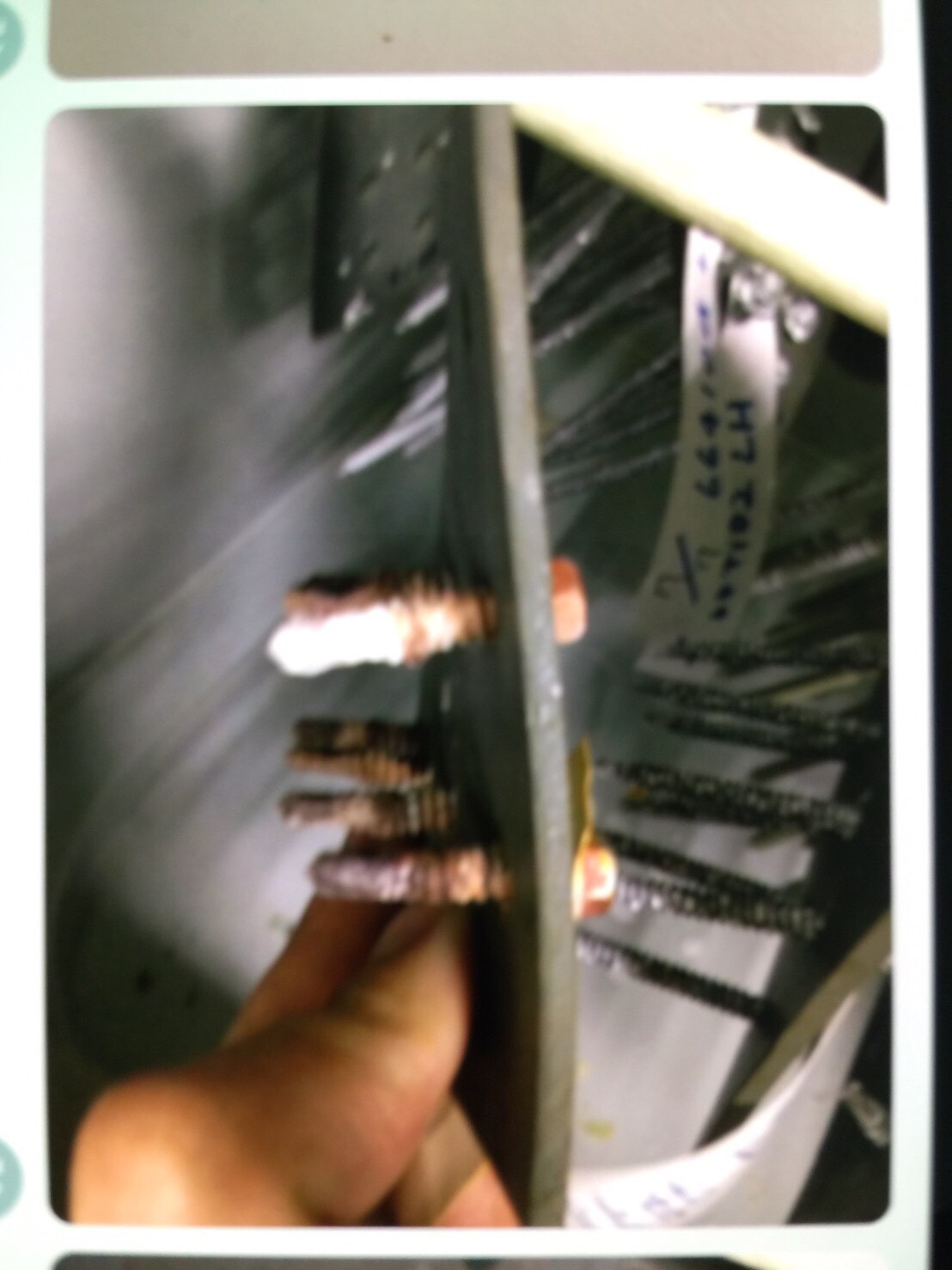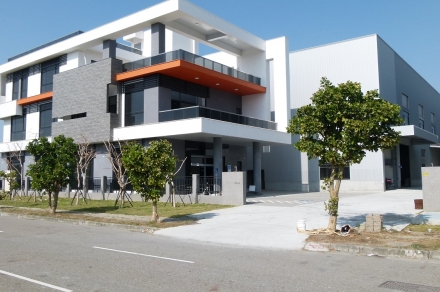Cherng Tzann Develops World's First Medium Carbon & Medium Alloy Steel Bi-Metal Screw



by Gang Hao Chang, Fastener World
Headquartered in the heartland (Gangshan, Kaohsiung) of Taiwan fastener industry, Cherng Tzann Autoweld Co., Ltd is the leading manufacturer specializing in developing bi-metal screws. Although the company has been established for only a few years, it has received orders from numerous renowned European, U.S., and Japanese companies by committing to offering various high-quality, durable, high-speed tapping bi-metal screws with outstanding antirust performance. The newly designed product of Cherng Tzann is the “world’s first medium carbon and medium alloy steel” bi-metal screw, whose performance outmatches competitors and demonstrates the top-notch manufacturing level of Taiwan’s refined screws.
Professional R&D Team Purusing High Quality But Costs
Cherng Tzann was founded literally for developing bi-metal screws. The company mainly developed screws made of 1022, 10B21, 410 and 35ACR during the first two years. Within a year, they successfully developed the world’s first medium carbon and medium alloy steel screws in response to a German client’s requirement where Cherng Tzann was asked to weld bi-metal screws made of SCM435. Such impressive manufacturing efficiency and excellent product performance started catching overseas companies’ eye on the leading technology of Cherng Tzann.
“We put as much effort as we could to develop this bi-metal screw. Although the manufacturing cost is 15% higher than low alloy steel screws made of 1022, offering the after-sales added values and cost effectiveness for our clients’ products or applications is our R&D team’s priority,” said General Manager Joe Cheng.
New Product Features:
1. No Invasive Corrosion After Washing When Rust Has Appeared for 5,000 Hours After SST
Cheng emphasized that lots of people often misapply salt spray test (SST) and Kesternich test for carbon screws to stainless steel or bi-metal products. The testing difference of carbon steel and stainless steel lies in—the testing of carbon steel is usually conducted until the sign of rust is noticed, while the testing of stainless steel is only accurate with the steel observation even after the sign of rust is shown. The testing of stainless steel is commonly done in two ways: one is corrosion speed test, and the other is chromium carbide and chromium nitride (intergranular corrosion) test. The most vital part of these tests is to observe whether the surface of the steel still maintains resistant to invasive corrosion after washing (Figure 2) even when rust has appeared for 5,000 hours after SST or after 35 cycles of Kesterhich test when (Figure 1). Cherng Tzann’s new bi-metal screws can meet the criteria.
2. No Intergranular Corrosion After High-Frequency Induction Hardening
Generally speaking, there are two heat treatment processes for bi-metal screws. One is high-frequency induction hardening, and the other is continuous heat treatment furnace. The former costs higher but ensures stainless steel does not break; the latter costs lower but has an intergranular corrosion problem. Cherng Tzann adopted the more costly one, enabling the bi-metal screws to retain the original properties of stainless steel and avoiding the disturbing intergranular corrosion caused by chromium carbide and chromium nitride.
3. Suitable for High Tensile Steel Plates and Extreme Climate
Bi-metal screws made of low carbon and low alloy steel can’t be easily tapped into high tensile steel plates applied to environments that are prone to typhoons, extreme cold, and earthquakes. By comparison, Cherng Tzann’s bi-metal screws made of SCM435 showcase their exceptional stability when tapped into high tensile steel plates. “Environments that contain chlorine such as seaside, swimming pool, and water plant are advised to use A4 stainless steel that is resistant to chlorine. 304 stainless steel that does not contain molybdenum is only suitable for common environment, for it is non-resistant to chlorine. The superior performance of the new bi-metal screws released by Cherng Tzann is proven to function well even in the environment below 40℃. The screws are the only material that can still function normally in such a harsh environment,” stated Cheng.
4. Zinc Plated Surface Protecting Inner Holes of Mating Parts
Nearly 99% of the bi-metal products in the current Asian market utilize Ruspert treatment. However, Ruspert treatment is unable to protect inner holes of the mating parts, so Cherng Tzann insisted on applying zinc plating to their bi-metal screws. General Manager Cheng explained that the coating on the bi-metal products, in fact, does not improve the weatherability, whereas the zinc plating can protect the surrounding iron, so as to prolong the durability of inner holes for ten more years.
Actively Expanding Export Market and Enhancing Level of Product Application
“The durability of the cheapest products in the market is 20 years at most, yet people often neglect the fact that most of the applied steel plates can sustain over 20 years, which poses a threat to the structural safety. In contrast, the bi-metal screws developed by Cherng Tzann do not have such an issue in that A2 bi-metal screws can sustain at least for more than three decades and still function normally even if the steel plate loses its durability. The products of Cherng Tzann are mostly sold to the global markets and the company cooperates with traders, offering services mainly to clients from Europe, the US, and Japan,” said Cheng. “At present many advanced countries including Europe, USA, and Japan demand the use of bi-metal screws in their design for screw application in construction industry. In the future, besides developing more bi-metal screws to meet the vast demand from clients, Cherng Tzann also hopes to elevate the production level of bi-metal products in Taiwan,” concluded Cheng.

Subscribe







